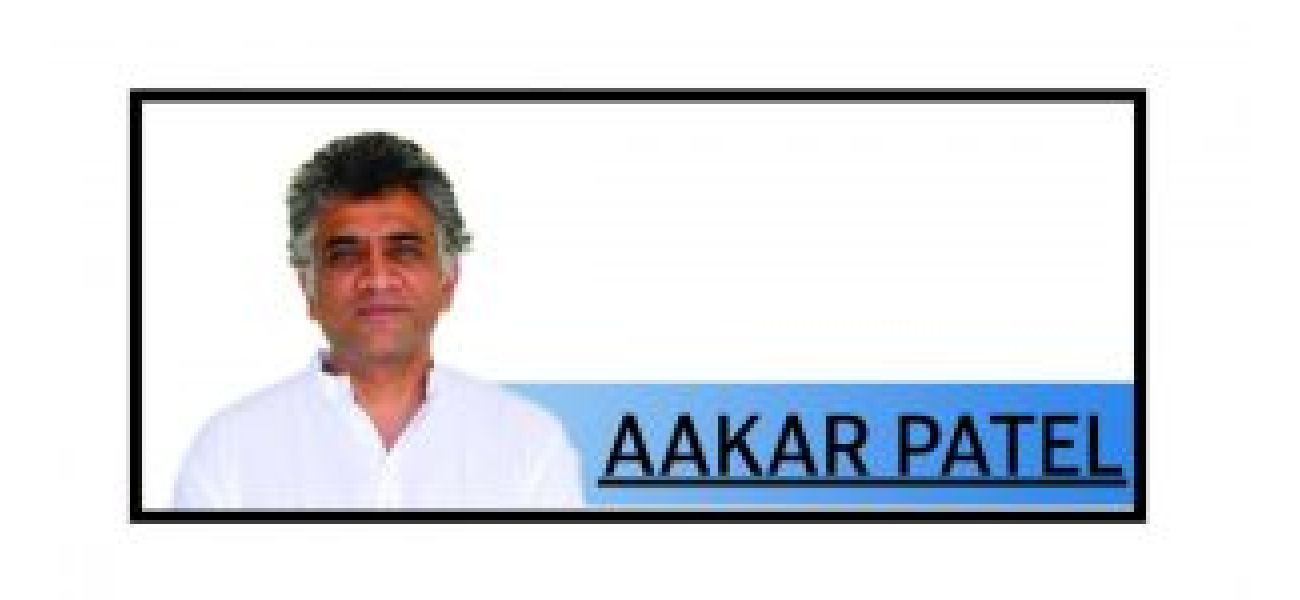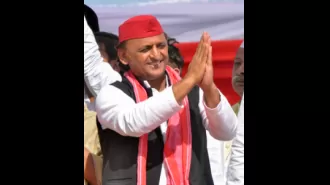Silenced mountain speech.
A newspaper in Kashmir, Kashmir Times, and its editor, Anuradha Bhasin, were allegedly raided based on accusations from unnamed sources. This occurred after the Modi government announced the 'New Media Policy 2020'.
November 23rd 2025.

There has been a lot of talk lately, from unnamed sources, about a recent raid on the Kashmir Times newspaper and its editor, Anuradha Bhasin. To fully understand the situation, it's important to have some context. On June 2, 2020, the Modi government introduced a new media policy specifically for Kashmir. This seemed contradictory, as the government had previously stated that they were working towards integrating the state and removing any laws that set it apart from the rest of India. However, this new policy, which spanned over 50 pages, gave the government extensive power to determine what news was considered "fake," "unethical," or "anti-national." They could then take legal action against journalists and media outlets based on these vague and undefined terms. Media watchdogs abroad expressed concern over the potential for misuse of these terms, as they left no clear guidelines for those in charge. While the press in Jammu remained silent on the issue, the media in Kashmir spoke out strongly against the policy. Bhasin was one of the courageous voices that stood up against it.
On January 10, 2020, the Supreme Court declared that access to the internet was a fundamental right for all Indians, while hearing a case related to the restoration of internet in Kashmir. However, this ruling was not enough to end the complete internet blockade in Kashmir, despite headlines reporting otherwise. The government justified their actions by claiming that the internet was being used by Pakistan to spread violence and terrorism. They argued that allowing full access to the internet would only lead to more provocative content being shared. The Solicitor General even referred to it as "internet jihad," a global phenomenon that could not be ignored. However, it is worth noting that the peak of violence in Kashmir actually occurred in 2001, when there was no internet or even mobile phone service in the region. Data shows no correlation between internet access and levels of violence, but the government and the court seemed to overlook this fact. Since the constitutional changes in 2019, there have been at least 90 government-imposed internet shutdowns in Kashmir, the highest number in the world. This has not gone unnoticed by the international community.
It was reported that the current shutdown is the longest ever imposed in a democracy, according to Access Now, an international advocacy group that tracks internet suspensions. Amnesty India also documented a total of 67 government-enforced internet shutdowns between January and August 2020. Despite the so-called "restoration" of the internet in Kashmir, it is still regularly suspended at the whim of the administration. This has forced the region back to a pre-modern era, with limited communication and access to information.
Now, to get to the heart of the matter, the petitioner in the case that was heard in January 2020 was Anuradha Bhasin, the editor and publisher of Kashmir Times. She had told the court that she was unable to publish the newspaper due to the government's communication restrictions. She petitioned the Supreme Court to lift these restrictions and allow for the free flow of information. However, the court did not respond as it should have, and the restrictions continued. As a result, Kashmir Times was unable to publish and was forced to stop its work. This did not go unnoticed by the world, with headlines like "Vendetta: Kashmir newspaper's office sealed by Indian officials" surfacing in October 2020.
As if this wasn't enough, another headline has emerged this week, highlighting the important role that Kashmir Times has played in the media landscape of the region. Established in 1954, it is considered a highly influential and credible voice in Kashmir. It is truly shameful that the newspaper and its editor have faced such attacks, and even more disappointing that they have not received more support from the Indian media. It is time for more voices to speak out in support of Bhasin and Kashmir Times. By Aakar Patel, Writer for Orissa POST - Odisha's #1 English Daily.
On January 10, 2020, the Supreme Court declared that access to the internet was a fundamental right for all Indians, while hearing a case related to the restoration of internet in Kashmir. However, this ruling was not enough to end the complete internet blockade in Kashmir, despite headlines reporting otherwise. The government justified their actions by claiming that the internet was being used by Pakistan to spread violence and terrorism. They argued that allowing full access to the internet would only lead to more provocative content being shared. The Solicitor General even referred to it as "internet jihad," a global phenomenon that could not be ignored. However, it is worth noting that the peak of violence in Kashmir actually occurred in 2001, when there was no internet or even mobile phone service in the region. Data shows no correlation between internet access and levels of violence, but the government and the court seemed to overlook this fact. Since the constitutional changes in 2019, there have been at least 90 government-imposed internet shutdowns in Kashmir, the highest number in the world. This has not gone unnoticed by the international community.
It was reported that the current shutdown is the longest ever imposed in a democracy, according to Access Now, an international advocacy group that tracks internet suspensions. Amnesty India also documented a total of 67 government-enforced internet shutdowns between January and August 2020. Despite the so-called "restoration" of the internet in Kashmir, it is still regularly suspended at the whim of the administration. This has forced the region back to a pre-modern era, with limited communication and access to information.
Now, to get to the heart of the matter, the petitioner in the case that was heard in January 2020 was Anuradha Bhasin, the editor and publisher of Kashmir Times. She had told the court that she was unable to publish the newspaper due to the government's communication restrictions. She petitioned the Supreme Court to lift these restrictions and allow for the free flow of information. However, the court did not respond as it should have, and the restrictions continued. As a result, Kashmir Times was unable to publish and was forced to stop its work. This did not go unnoticed by the world, with headlines like "Vendetta: Kashmir newspaper's office sealed by Indian officials" surfacing in October 2020.
As if this wasn't enough, another headline has emerged this week, highlighting the important role that Kashmir Times has played in the media landscape of the region. Established in 1954, it is considered a highly influential and credible voice in Kashmir. It is truly shameful that the newspaper and its editor have faced such attacks, and even more disappointing that they have not received more support from the Indian media. It is time for more voices to speak out in support of Bhasin and Kashmir Times. By Aakar Patel, Writer for Orissa POST - Odisha's #1 English Daily.
[This article has been trending online recently and has been generated with AI. Your feed is customized.]
[Generative AI is experimental.]
0
0
Submit Comment





